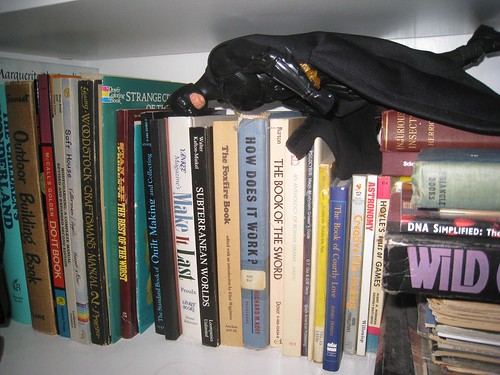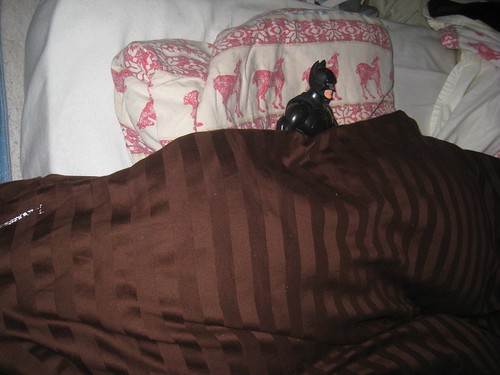(I’m posting this to share my experience, not to solicit advice. If others want to share their experiences, too, I’d love it, but no advice, please.)
“It’s called willpower,” Colson Whitehead says in this PW article about… well, about many things, only one of which is the need some writers have of hiding themselves away in a hostage pit because they can’t handle distraction.
I’m one of those writers, and I freely admit that it embarrasses me. When the writing gets really difficult, I find it very difficult to focus on the problems and opportunities there, and all too easy to check my emails, or Twitter, or my LiveJournal friends list.
It used to be that I could hide at Starbucks. They charged for wi-fi and I’m too cheap to pay for my procrastination… then they backed down and offered it for free. Soon I was checking my emails, just in case something important came in, and are there new posts on LJ? Oh, what crazy shit has so-and-so said about books this time? An article on health care reform! It’s my duty as a citizen to stay up-to-date on politics, and besides I can read it while this funny video loads.
And don’t forget that I need things to blog about other than the usual I’m-tired-my-butt-itches crap. Links for the Randomness posts! Op-eds to disagree with! Movies to pick apart!
Except that I didn’t really need any of that. What I needed was time and quiet space to work. I don’t need a physically quiet space, but I do need one where my jump-around brain won’t latch onto something interesting and easy, like my Twitter timeline or the book I’m reading.
There was a Radiolab from a while back that talked about the bargains creative people have to make. It’s worth listening to, maybe while you’re doing dishes or something. For me, it’s helped me work out a new plan to increase my productivity: just like all those people who put A WOMAN UNDER THE INFLUENCE in their Netflix queue as something they’ll watch someday way out in the future while continually picking THE HANGOVER or DRIVE ANGRY for what they want to watch right now, it’s easy for me to plan virtue way in advance, but nearly impossible to grasp it in the moment. If I could be trusted to back up my own material manually, I’d crack the case of my laptop and pith my wi-fi connection. Since I can’t, I use Dropbox.
So I turn my laptop on the night before and set Mac Freedom for six hours. Maybe eight, but usually six.
That’s long enough for me to do my pages, then revise one of my old short stories for a self-pub collection I’m considering, and that’s it. I can reboot if I want to check my email at the library or whatever, or I can come straight home and wait for the timer to run out, at which point the household wi-fi handles all the backing up.
But that’s the best work around I can come up with at the moment. My brain has a hard time staying on task, and talking about willpower misses the point. If I’m hungry, tired, cold, or depressed, I can write. Adversity I can handle. What I have a hard time with, apparently, is fun, luxury, pleasure, and comfort. Those are the things that will ruin me.



